When night falls and you slip under the sheets, you're looking for that subtle alchemy between reassuring warmth and airy softness, a cocoon that doesn't weigh you down, that breathes, that whispers to your body "you can rest".
In this hushed universe, among the noble materials, one duvet stands out from the rest: the silk duvet. But is it really "the best"? Here, we explore the scientific data that propel it to this rank, not simply as a marketing argument, but thanks to rigorous studies on thermal comfort, body homeostasis and sleep quality.
Contents
- Thermal comfort, an invisible but essential issue
- What does science have to say about silk duvets?
- Beyond thermos: moisture, breathability, skin health
- Why silk duvets are the best
- Our Oeko-tex® silk duvets
- Conclusion
- Our selection
- FAQ
- Related articles
Thermal comfort, an invisible but essential issue
Dormant thermophysiology
Even at rest, the human body generates heat. During sleep, it seeks to maintain a stable core temperature. When the environment or duvet is ill-adapted, too hot, too cold or too damp, the brain perceives a thermal disturbance that can trigger awakenings or alter the quality of deep sleep.
Duvets, insulation and bed microclimate
The duvet creates a real microclimate around the body. Its ability to retain or release heat is crucial to maintaining a comfortable temperature. Studies show that the greater the thermal resistance of a duvet, the more stable it is able to maintain a good night's sleep even if the ambient temperature varies.
What does science have to say about silk duvets?
Comparative study of silk / fluff / polyester
In 2022, a study published in Indoor Air, an international open-access scientific journal specializing in research into indoor environmental quality in non-industrial buildings (such as homes and offices), compared 3 types of duvet, silk, fluff and polyester, under rigorous experimental conditions, with 16 participants (Qing Zheng et al, Effects of quilts on comfortable indoor temperatures and human thermal responses during sleep, 2022 [Source PubMed])
The researchers wanted to observe the the body's thermal reactions during sleep. Each duvet maintains the same insulating capacity (same heat output).
Here's what they discovered:
The silk duvet creates a more pleasant feeling of warmth: For identical insulation, the temperatures measured on the skin and in the bedding were higher with the silk duvet than with fluff or polyester duvets. In other words, for the same thermal comfort, silk feels warmer, without weighing down or overheating.
Ideal temperatures for a good night's sleep:
- Average skin temperature: between 34.6°C and 35.2°C
- Average bedding temperature: between 31.2°C and 32.7°C.
These values correspond to the thresholds at which sleepers feel most comfortable, according to the thermal sensation scale (between "neutral" and "slightly warm").
A wider comfort zone: Silk duvets enable sleepers to feel comfortable over a wider range of ambient temperatures than other duvets. In other words, it adapts better to temperature variations in the bedroom, where fluff and polyester are more sensitive to variations.
"For the same bedding insulation, the lower temperature and upper temperature were highest for using silk quilts, followed by down and polyester quilts." Qing Zheng et al., 2022
This study provides a solid scientific basis for what many users already intuitively feel: silk is not only soft, it also optimizes thermal comfort throughout the night.
The effect of thermal resistance on comfort
An effective duvet must maintain a good body temperature, even if the room temperature changes. Further research confirms that the higher the thermal resistance of a duvet, the more comfortably it can sleep over a wide temperature range.
Beyond thermos: moisture, breathability, skin health
Humidity regulation and microclimate
At night, the body also produces moisture. Silk, naturally breathable, helps evacuate this moisture. This avoids the "clammy" effect that can be felt with other materials.
Hypoallergenicity, mildness and skin effects
Silk is naturally hypoallergenic. It's gentle on the skin, reduces irritation and prevents dust mites from lodging. An important asset for sensitive skin and allergy sufferers.
Why silk duvets are the best
Why silk really stands out
Based on thermophysical data and principles, several mechanisms and arguments can be identified:
Conductivity and thermal regulation : Silk has moderate thermal conductivity, which means it conducts heat more slowly than synthetic fibers, without the "suffocating" effect of some highly insulating fabrics.
Breathability and moisture management: silk can absorb some moisture (sebum, body moisture) and release it, limiting the feeling of dampness or wetness under the duvet.
Lightweight for the same insulation : for the same insulating capacity, a silk duvet can remain lighter, avoiding the "heavy comforter" effect that can impede movement or create areas of localized overheating.
Extended comfort range : As the study cited above shows, for the same level of insulation, silk allows wider ambient temperatures while maintaining comfort. This offers greater flexibility according to season or night-time temperature variations.
Why choose a silk duvet?
A smoother, more stable body heat management without overheating or cooling peaks.
A better comfort because the body receives fewer "thermal discomfort signals" (shivering, sweating, micro-awakening), as suggested by the study results.
A greater tolerance to ambient variations: Silk extends the temperature range in which we feel comfortable, reducing the risk of overheating at night.
A durable, high-end product that combines elegance, luxurious feel and performance.
Our Oeko-tex® silk duvets
Conclusion
Silk duvets seduce not only by their feel. It is also scientifically validated for its thermal qualities and overall comfort. Better temperature control, softness, lightness Silk offers a complete sleep experience, both luxurious and functional.
Treat yourself to exceptional nights
Breathe, relax and discover the duvet that's revolutionizing your nights. Thermoregulating, natural, incredibly soft: the silk duvet transforms your sleep.



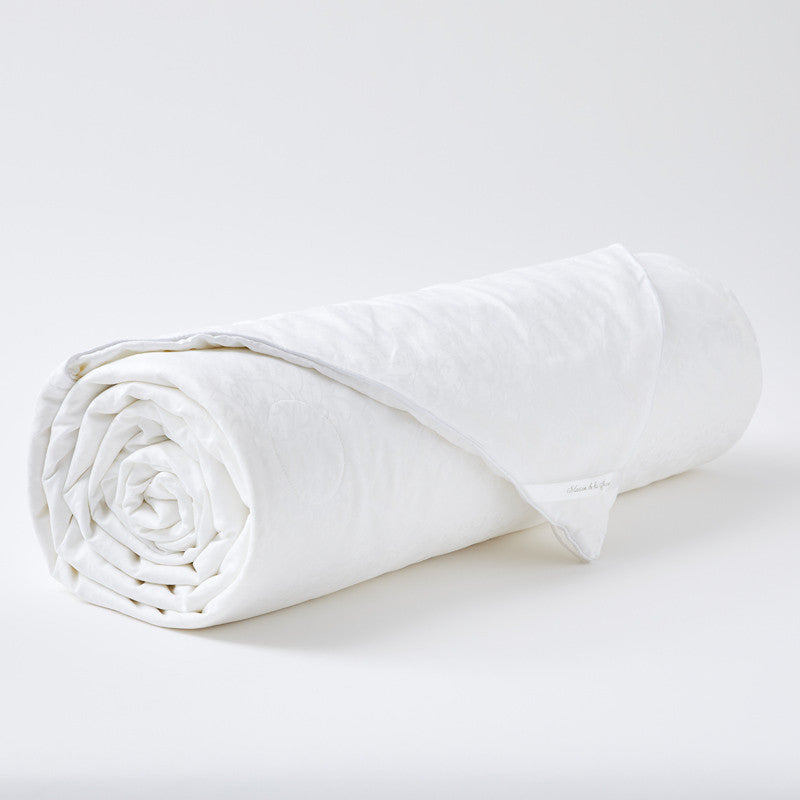
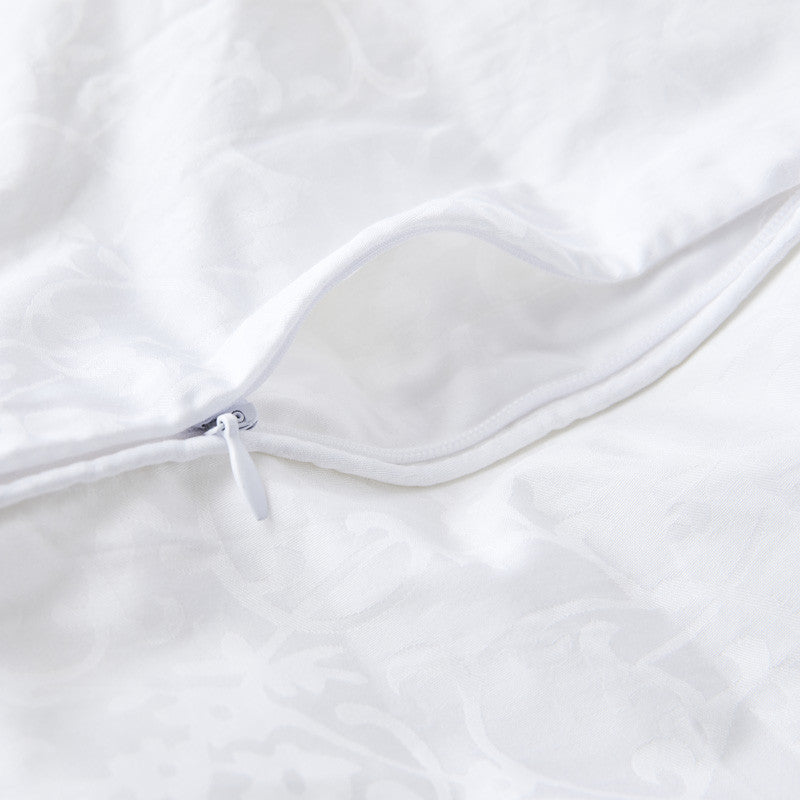
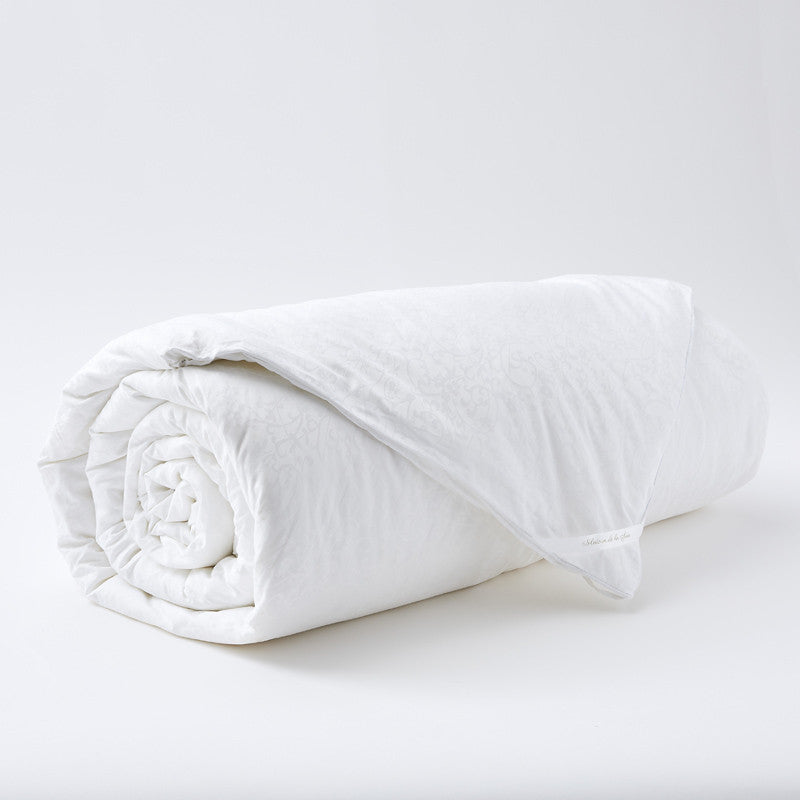
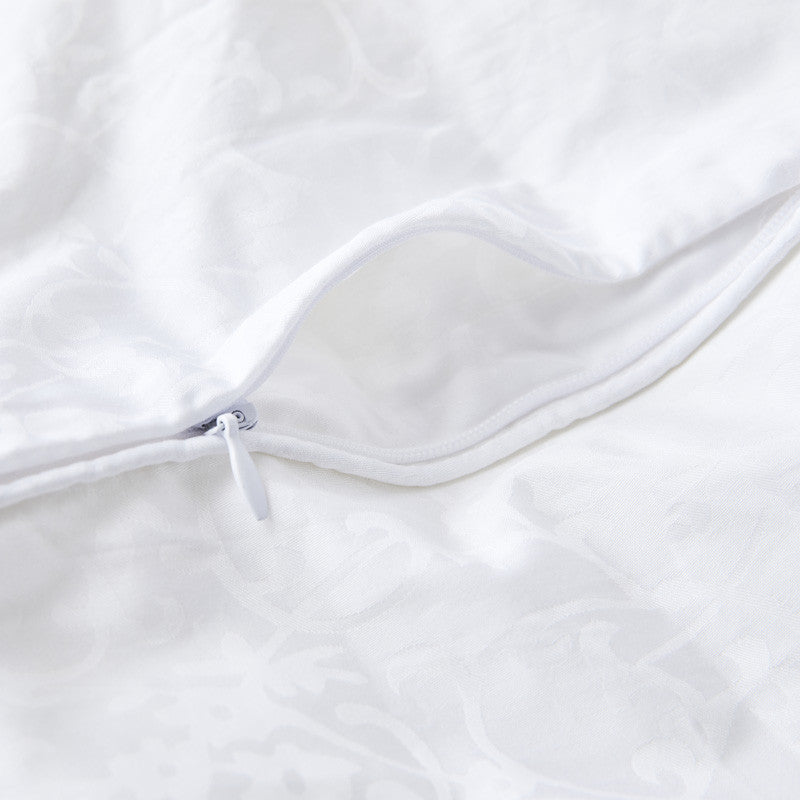
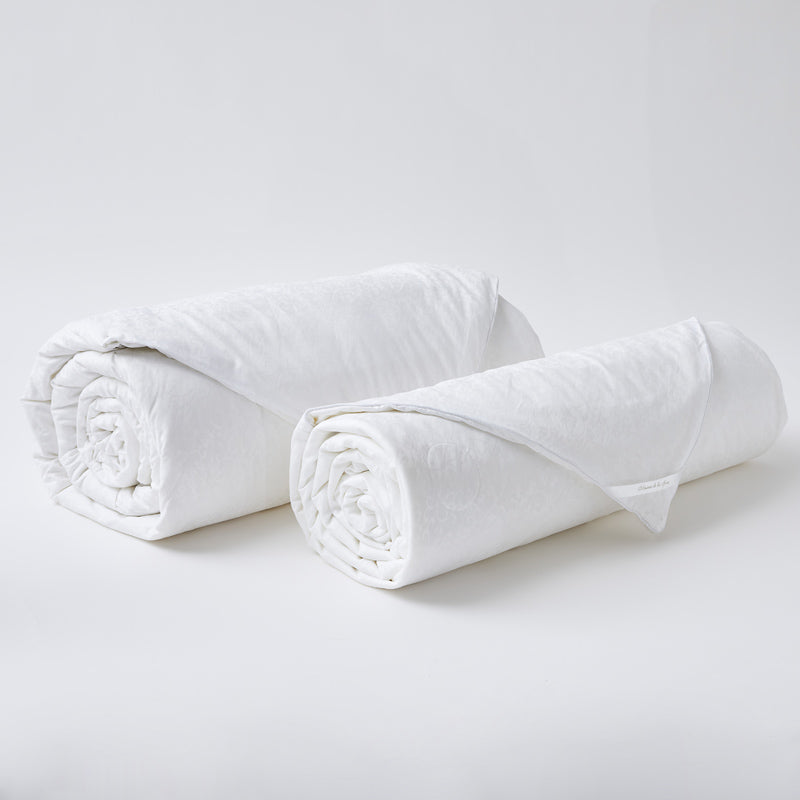
Leave a comment